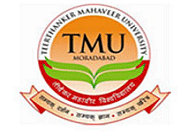Introduction
to BA in Criminology
BA in Criminology is an
undergraduate program that focuses on the study of crime, criminal behavior,
and the criminal justice system. This interdisciplinary field draws on
sociology, psychology, law, and public policy to understand the causes of
crime, the functioning of criminal justice institutions, and the impact of
crime on society. Graduates of this program are prepared for careers in law
enforcement, corrections, forensic analysis, and various roles within the
criminal justice system.
Admission
Process for BA in Criminology
The admission BA in Criminology
typically involves the following steps:
- Eligibility Criteria:
- Completion of high school or equivalent, often with a strong
background in social sciences.
- Some programs may require specific grades or coursework in
subjects like sociology, psychology, or history.
- Entrance Exams:
- Depending on the country and institution, candidates might need to
take standardized tests such as the SAT, ACT, or specific university
entrance exams.
- In some countries, national or regional entrance exams are common
for admission to undergraduate programs.
- Application:
- Submission of an application form through the university's
admission portal, either online or offline.
- Inclusion of academic transcripts, standardized test scores,
letters of recommendation, and a personal statement or essay explaining
the candidate's interest in criminology.
- Interview:
- Some universities may require an interview as part of the
selection process at top university in Punjab.
- The interview may assess the candidate's motivation, understanding
of criminology, and relevant skills.
- Selection:
- Universities evaluate candidates based on their application
materials, test scores, and interview performance.
- Selected candidates receive admission offers, which they must
accept within a specified period.
Syllabus of
BA in Criminology
The syllabus BA in Criminology
generally covers a wide range of theoretical and practical topics related to
crime and the criminal justice system. Below is a typical outline of the
subjects covered throughout the program, usually spread over six to eight
semesters.
Year 1
- Introduction to Criminology:
Basic concepts, scope, and significance of criminology.
- Sociology: Fundamentals of sociology, social
structures, and institutions.
- Psychology:
Introduction to psychological principles and their relevance to criminal
behavior.
- Legal Systems and Criminal Law:
Overview of legal systems, criminal law, and the judicial process.
Year 2
- Theories of Crime:
Classical and contemporary theories explaining criminal behavior.
- Research Methods in Criminology:
Qualitative and quantitative research methods, data collection, and
analysis.
- Victimology:
Study of victims, their experiences, and the impact of crime on victims.
- Juvenile Delinquency:
Causes, prevention, and treatment of juvenile delinquency.
Year 3
- Criminal Justice System:
Structure and functioning of law enforcement, courts, and correctional
institutions.
- Penology and Corrections:
Theories and practices of punishment, rehabilitation, and corrections.
- Criminal Profiling and Investigation: Techniques for profiling criminals and investigating crimes.
- Electives: Specialized courses such as forensic
psychology, white-collar crime, or cybercrime.
Year 4
- Advanced Criminological Theory:
In-depth study of contemporary criminological theories and their
applications.
- Crime Prevention and Community Safety: Strategies for crime prevention and enhancing community safety.
- Capstone Project or Dissertation:
Independent research project on a relevant criminological issue.
- Internship:
Practical experience in a criminal justice agency or related organization.
Practical
Components
- Laboratory Sessions:
Practical exercises related to criminal investigations and forensic
analysis.
- Workshops and Seminars:
Sessions with practitioners and experts in the field of criminology best university in Punjab.
- Group Projects:
Collaborative research and analysis of criminological issues.
- Field Trips:
Visits to correctional facilities, police departments, and courts to
observe the criminal justice system in action.












